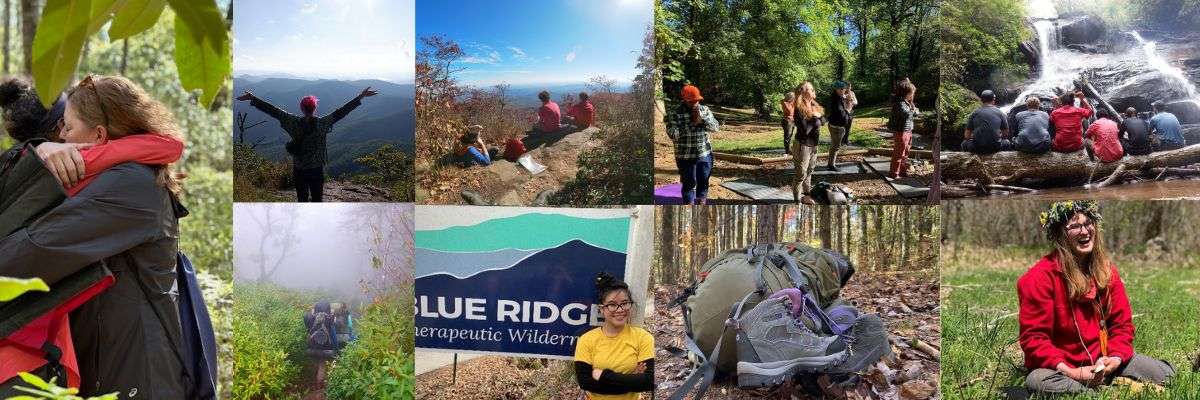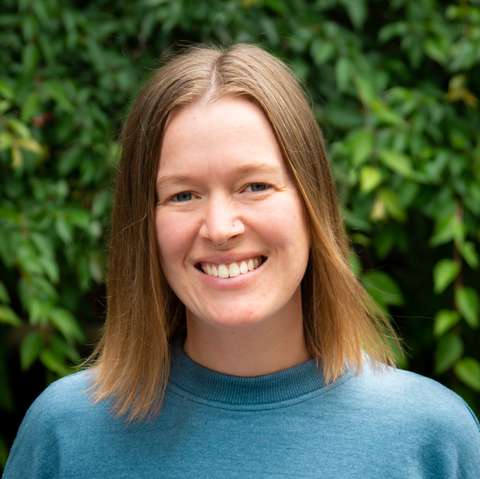Q: Tell us about yourself. What’s your background? How did you come to work at Blue Ridge?
A: I began working in wilderness therapy in 2016 as a field guide with Open Sky Wilderness Therapy. It was in my work with adolescent girls in the deserts of Utah and the mountains of Colorado that I witnessed, first hand, the incredible and unique power of wilderness therapy. That work inspired me to pursue a career in social work and to become a wilderness therapist. After seven years working in the field out West, I transitioned closer to home to work at Blue Ridge Wilderness.
Q: What’s the typical student profile in your group (G2)?
A: I enjoy working with a broad range of treatment profiles in my work with adolescent girls. From addiction, oppositional behavior, and school failure, to early childhood trauma, attachment, and adoption issues and beyond, the milieu in my group is wonderfully diverse.
Q: What would you consider to be the power of Wilderness Therapy? Why do you choose to work in the wilderness, specifically?
A: The wilderness is immensely powerful and healing in itself, no one working in wilderness therapy would deny that, but I think that the power of wilderness therapy truly lies in the use of the group milieu and the relational work that happens in that space. Our students live in a complex social group 24 hours a day, every day, for weeks on end. There are no doors to slam and hide behind, no cell phones to scroll, no opportunity to end relationships when they become uncomfortable or challenging. Our students are learning to communicate assertively, to remain in relationship through conflict, and to live in alignment with their personal values on a daily basis. We aren’t creating teenagers who will rely on daily meetings with a therapist for the rest of their lives to be able to cope with the challenges their will face in their lives. Rather, we are teaching autonomy, self-sufficiency, and problem solving skills that will empower our students to go out and live their lives to the fullest.
Q: Can you talk a little bit about how you build relationships with your students’ parents?
A: I know how unbelievably challenging it is to parent a teenager in the modern world, even under the best of circumstances. It is my goal to align closely with my students’ family, to work together to create goals for our work together, and to build a trusting, honest, authentic relationship within which we can collaborate to best support their child. Families I work with can trust me to be honest, non-judgemental, impartial, and collaborative.
Q: What does the word “success” mean to you?
A: It doesn’t matter how I define “success” in my own life. The word “success,” in the work I do, actually has countless definitions. Every child and every family must create their own unique definition of success. It is essential for me to understand everything that my students and their families bring into the work: their histories, their capacities, their experiences, their beliefs and values. I need to understand all of those elements so that we can work together to create a definition of success, and then work toward that unified goal, together.
Q: What do you do in your free time? Where can we find you when you're not here in Clayton?
A: In my free time you will often find me running around at Sniffspots with my rescue dog, Juni. I enjoy hiking, paddleboarding, and taking long walks around Asheville. I am always learning a new craft or skill, but move on quickly once the initial learning process ends. I like listening to science podcasts and learning information that will rarely be useful in my daily life.


